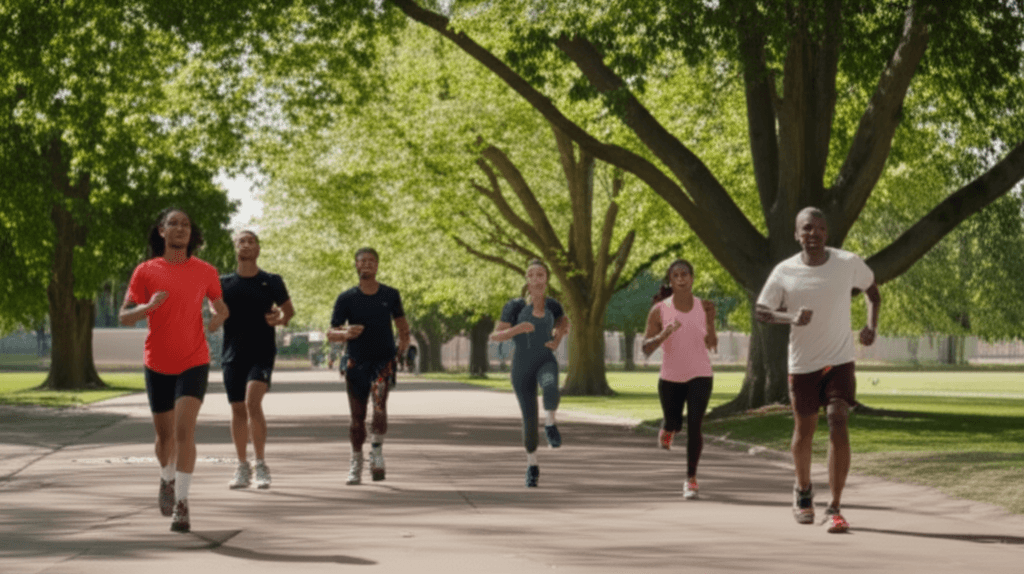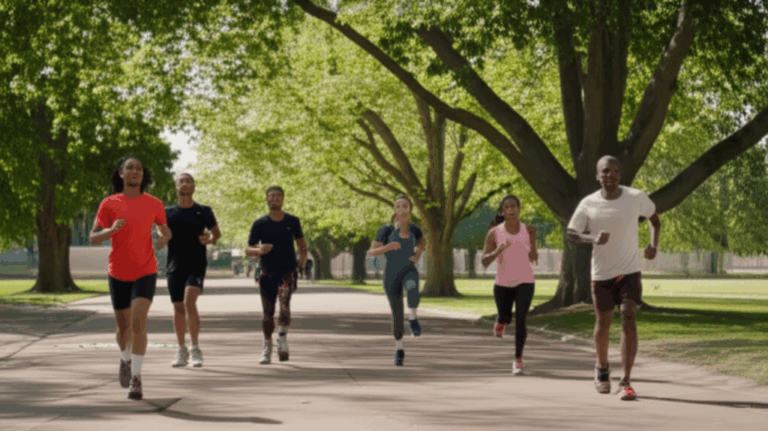CLEVELAND, Ohio – A new nationwide poll from the Cleveland Clinic has found that most men acknowledge the profound positive impact of exercise on their mental health, confidence, and sex drive. Despite this widespread recognition, nearly one in three men still do not engage in regular physical activity, leading to reported declines in their overall well-being.
Released as part of the Cleveland Clinic’s 10th annual MENtion It® campaign, the survey of 1,000 U.S. men aged 18 and older highlights a critical disconnect between understanding the benefits of exercise and consistently incorporating it into daily life.

The Mental Health Connection: More Than Just Physical Fitness
The poll’s findings underscore that the benefits of exercise extend far beyond physical appearance, deeply influencing men’s psychological state. Among men who regularly work out, a significant majority experience negative effects when they skip their routine. Specifically:
- 81% reported lower energy or fatigue.
- 47% experienced more stress or irritability.
- 37% noted a decrease in mental well-being.
Dr. Adam Borland, a psychologist, suggests that the mental health benefits are tied to the release of serotonin and dopamine in the brain, often referred to as “feel-good” hormones. Regular physical activity is known to reduce symptoms of depression, anxiety, and stress, acting as a natural antidepressant by promoting these neurotransmitters. Furthermore, exercise can enhance self-esteem and body image, crucial elements for men’s mental health.

Exercise and Sexual Health: A Direct Link
The survey also delved into the often-overlooked link between physical activity and men’s sexual health, revealing a strong perceived connection.
- 61% of men stated that their physical fitness directly influences their sex drive or sexual performance.
Despite this, the poll highlighted common sexual health complaints, with approximately 18% of men reporting low sexual desire in the past year and 15% experiencing erectile dysfunction (ED). Worryingly, a large percentage of men were unaware that these sexual problems could be early indicators of more serious underlying health conditions like heart disease, uncontrolled diabetes, or high blood pressure.
Research consistently supports the notion that physical activity improves sexual function in men. Systematic reviews and meta-analyses show that regular aerobic exercise can significantly enhance erectile function, particularly in men with existing difficulties. Exercise positively impacts nitric oxide production, insulin sensitivity, and testosterone levels, all of which are vital for maintaining vascular function and male erection.

The Paradox of Inactivity: Recognizing Benefits, Avoiding Action
A key takeaway from the Cleveland Clinic survey is the puzzling statistic that 30% of men do not engage in regular physical activity, despite acknowledging its numerous benefits. This inertia can contribute to a cycle where stress and anxiety, common experiences for 86% of men during a typical week, make it even harder to initiate exercise.
Dr. Petar Bajic, director of the Men’s Health Section at Cleveland Clinic’s Glickman Urological Institute, emphasized the interconnectedness of various health aspects. “Men sometimes focus on their physical health, but mental and sexual health are just as important, and they’re all connected. When one area is off, it can affect the rest,” said Dr. Bajic. “Health challenges rarely happen in isolation and understanding that connection is key.”

Breaking the Stigma and Prioritizing Well-being
The poll also offered a hopeful sign: 66% of men reported feeling comfortable seeking help from a mental health professional, indicating a potential decrease in the stigma surrounding mental health discussions. Dr. Bajic urged men to leverage this openness to address all aspects of their well-being. “The more we break down the stigma around discussing issues like sexual performance or stress, the better equipped men are to take control of their health and get the support they need,” he added.
Regular physical activity, whether through vigorous workouts or moderate daily movement, serves as a powerful, non-pharmacological tool for enhancing both mental and sexual health. Healthcare providers are increasingly recommending exercise as a primary intervention for men experiencing sexual dysfunction.
In an increasingly sedentary world, the Cleveland Clinic poll serves as a timely reminder that making time for exercise is not just about physical fitness, but a comprehensive investment in men’s mental resilience, emotional balance, and sexual vitality.







